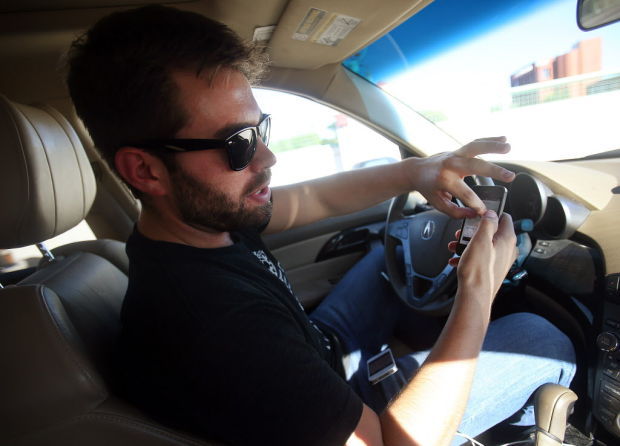PHOENIX — State senators voted 20-8 Tuesday to remove what they said are legal impediments to alternative “transportation services” such as Lyft and Uber, paving the way for them to compete with taxis in Arizona.
In an often-heated debate, supporters agreed that the companies and the individuals who drive for them should not be subject to all the same regulations as traditional taxi firms. Sen. Kelli Ward, R-Lake Havasu City, who is championing these alternatives, said there is no reason for some of the insurance and drug-testing requirements to be applied.
“They’re different entities,” she said, even if both provide rides.
HB 2262 now goes to the House, which has not considered the issue.
The two companies lobbying for the change, Lyft and Uber, have a business model built on ordering up rides online. Companies then send out messages to individuals who, using their own vehicles, are willing to pick up patrons and, for a fee, take them to their destination.
Passengers pay the fee online, with the company forwarding a share of that to the driver.
One of the big concerns is the question of whether these motorists are actually insured.
Don Hughes, an adviser to Gov. Jan Brewer, said most individual liability policies specifically exclude coverage for commercial activities. He said that could mean a Lyft or Uber driver who hits someone else is actually driving uninsured, leaving no money for a victim, something he said is a concern for the governor.
Ward’s proposal seeks to resolve that by requiring the companies to provide $1 million in coverage — but only from the time they accept an offer from the company until they drop off the fare.
Senate Majority Leader John McComish said that’s not enough, saying the drivers are still out, cruising around the streets while waiting for a fare. He said Uber, Lyft — and any other company that enters the market — should be required to provide full-time insurance for anyone who drives for them.
But Ward said that ignores the fact that the companies are not operating a fleet of taxis, and that those who pick up passengers are not company employees.
“It is something brand new,” she said, adding that the firms are engaged in “creative disruption” of the traditional marketplace “to stimulate things.”
Ward said the average driver picks up fares for only about 15 hours a week.
“It allows them to create their own business, to be entrepreneurs, to not owe a taxi company upwards of $3,000 a month before they ever start to make a profit,” she said. And Ward said the drivers, making an average of $30 an hour, are contributing to the economy.
But McComish chided colleagues who have framed the issue of a bunch of little guys taking on the giant taxi companies.
“The reality is that these new guys are billion-dollar corporations that have entered the Arizona marketplace. They’ve basically either broke or avoided the rules,” he said. “Now they want special dispensation.”
McComish also said the differences between the two models are not that great, pointing out that there are opportunities driving a cab for those who want to work only part time.
He said no one is trying to put Uber and Lyft out of business, but only to require that they follow the same rules as anyone else who picks up passengers, drives them somewhere and gets paid for it.
The issue was highlighted several months ago after a highly publicized incident in which a driver for Uber, between rides, struck and killed a 6-year-old pedestrian in San Francisco. The girl’s parents have sued Uber, which has denied liability in the incident.
Hughes said Brewer’s other concern goes to the question of drug testing.
The governor signed legislation just last year to subject drivers of taxicabs and limousines in Arizona to random drug testing. The measure requires those who own or lease out taxis and other vehicles for hire to screen applicants for drugs at the time they are hired or allowed to lease one of the vehicles. That is on top of an existing requirement for a criminal background check.
Ward, however, said the law regulating taxi companies has “no teeth” because it doesn’t prohibit a company from hiring or refusing to fire a driver who tests positive.
By contrast, Ward said her legislation bars anyone with a criminal drug conviction from driving for a ride-share company.
Sen. Bob Worsley, R-Mesa, said the model being advanced by Lyft and Uber will change the entire nature of traveling. He said there is no reason for vehicles traveling on highways to have empty seats.
“How many of us are going down the freeway, one person in a six-passenger vehicle?” he said. Worsley said he sees no reason to subject these services to the same regulations as commercial taxis.
Sen. Robert Meza, D-Phoenix, echoed the sentiment, saying the state should not stand in the way of a “new paradigm” of business.
“We could be old school and never make changes to a system or an infrastructure,” he said.
“Or we could be cutting edge as a state and incorporate this type of business model that’s coming to the state of Arizona,” Meza continued. “Because it’s going worldwide.”





